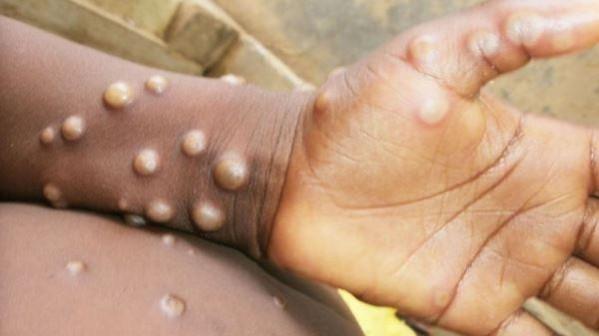
The recent surge in Mpox cases in Pakistan and the Philippineshas raised global health concerns. Pakistan reported its fourth case of the deadly Mpox virus, marking a significant increase since the World Health Organization (WHO) declared the infectious disease a global health emergency last month. The latest case involves a 47-year-old man from Peshawar who tested positive after returning from the Gulf region. He is currently in isolation, and his infection was confirmed by the country's Public Health Reference Laboratory.
Dr. Irshad Ali Roghani, Khyber Pakhtunkhwa's Public Health Director, stated that the man is stable and undergoing treatment at the Police and Services Hospital (PSH). He further added that no local cases have been reported so far, and the province's health department has created an integrated surveillance and response system for Mpox. This system is crucial in monitoring the spread of the virus and implementing necessary measures to control it.
The first suspected case of Mpox in Pakistan was reported on August 16, involving a 34-year-old man who recently returned from Saudi Arabia. The health ministry clarified that it was of the Clade II strain, which was also responsible for the 2022 outbreak.
The country's second and third cases were confirmed at Peshawar airport, with the third case identified after medical personnel at Bacha Khan International Airport spotted two travelers displaying symptoms of the Mpox virus. Dr. Shabana Saleem, Federal Director General of Health, referred to the patient as the fifth Mpox case reported in Pakistan this year and the fourth since WHO declared Mpox a global health emergency. She emphasized the need for vigilance, particularly among travelers from the Gulf. The authorities have ramped up screening protocols at airports across the country in response to the rising cases.
Meanwhile, the Philippines has also seen an increase in Mpox cases, with three more reported, bringing the total number of active cases to eight this year. Two of these cases were detected in Metro Manila and one in the Calabarzon region. All three cases involve the milder MPXV clade II variant, as reported by the Health Ministry.
The new infections come as Africa is battling another outbreak of Mpox, driven majorly by the more deadly and virulent Clade Ib variant. Outside Africa, Clade Ib has caused one infection each in Sweden and Thailand.

Historically, outbreaks of infectious diseases have often led to significant public health responses, including the establishment of surveillance systems, increased testing, and public awareness campaigns. For instance, the global response to the H1N1 pandemic in 2009 involved widespread surveillance, rapid development of a vaccine, and global cooperation in vaccine distribution. Similarly, the ongoing COVID-19 pandemic has seen unprecedented global efforts in disease surveillance, vaccine development, and public health interventions.
In the case of the Mpox outbreak, similar strategies are being employed. The establishment of an integrated surveillance and response system in Pakistan's Khyber Pakhtunkhwa province is a key step in monitoring the disease and implementing necessary interventions. The increased screening protocols at airports across Pakistan also reflect the lessons learned from past outbreaks, where travel has often been a significant factor in disease spread.
In the Philippines, the detection and reporting of new cases indicate active surveillance and testing efforts. The identification of the specific variant involved in the cases also suggests advanced laboratory capabilities, which are crucial in understanding the disease and informing public health responses.
The recent Mpox cases in Pakistan and the Philippines underscore the ongoing global health challenge posed by infectious diseases. The responses by health authorities in both countries reflect lessons learned from past outbreaks and the importance of surveillance, testing, and public health interventions in controlling disease spread. However, the global nature of the outbreak calls for international cooperation and coordination in monitoring the disease and implementing effective public health responses. The current situation serves as a reminder of the interconnectedness of our world and the importance of global collaboration in addressing public health crises.









